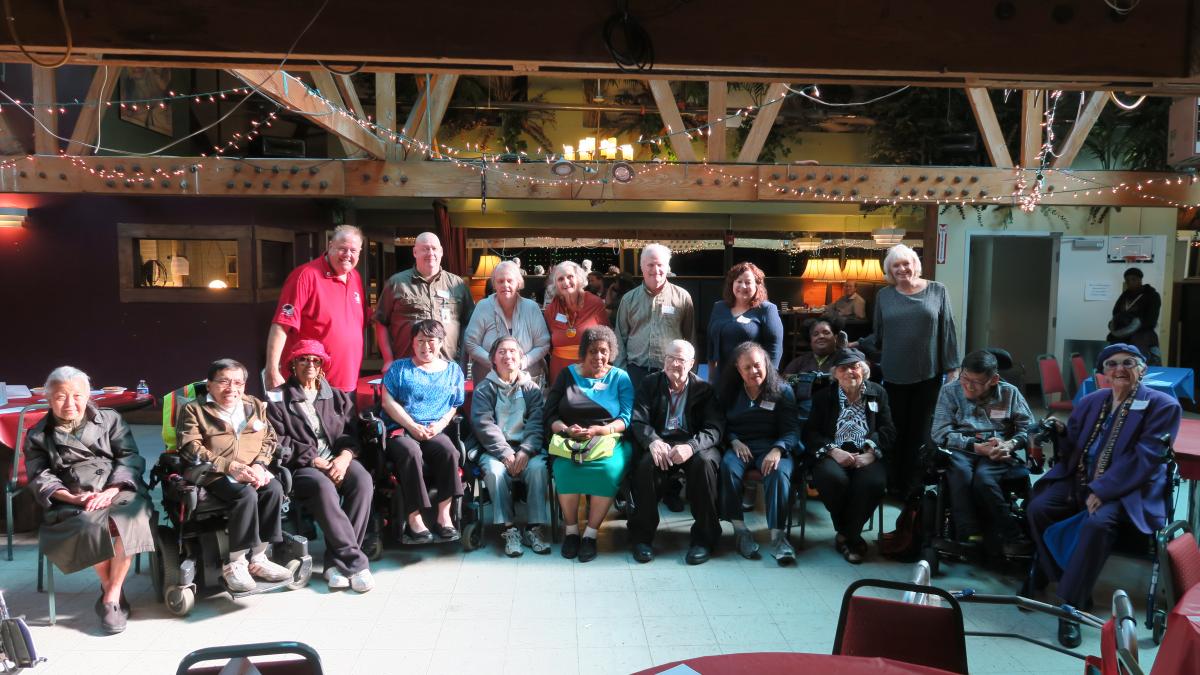By Jonathan Cheng
This week marks the 30th anniversary of the signing of the Americans with Disabilities Act (ADA). In 1990, the ADA made clear that public transit must be fully accessible to persons with disabilities. The SFMTA continues its commitment to developing a more comprehensive accessible transportation network including improving accessible bus, rail and paratransit services. As we reflect on thirty years of the ADA creating a more accessible transportation system, we also recognize there are many opportunities that lie ahead.
The ADA clearly mandated that both transit service accessibility and paratransit were an obligation of all transit agencies in the nation and moved the needle forward in terms of accountability. However, Muni’s commitment to providing access for seniors and persons with disabilities accessibility predates the ADA. Muni started to purchase buses with wheelchair lifts and initiated a paratransit van and taxi program to for people not able to use bus and rail service in the late 70’s and early ‘80’s.
The ADA came out of the work of the Disability Rights movement and years of protests
Disabled advocates in the Bay Area have long been on the forefront of demanding civil rights for persons with disabilities. As we celebrate 30 years of the ADA and are in the midst of the Black Lives Matter civil rights movement, it’s important to remember how important advocacy and the participation of people with disabilities was to the, passage and implementation, of the ADA.
Congress passed the Rehabilitation Act in 1973. A section of that law, Section 504, stated that any entity that receives any federal money may not discriminate against persons with disabilities. However, by 1977, the rules and regulations to implement Section 504 had yet to be written, so for all intents and purposes, the law had not taken effect.
In April 1977, advocates with disabilities around the country organized demonstrations in frustration. The largest demonstration in the country occurred at the San Francisco Federal Building, with a sit-in lasting for 28 days. More than 100 people sat in at that demonstration. The success of these protests spurred the federal government to further define the Section 504 requirements.
In the following years, however, there was a lack of progress nationwide to make public transit accessible. During the 1980s, advocacy groups held protests at the American Public Transit Association conventions. This determined advocacy eventually led to the much more comprehensive Americans with Disabilities Act of 1990.
Advocacy and prioritizing mobility and accessibility for those who have the fewest transportation choices has made the San Francisco Bay Area a leader both in advocating for and in delivering comprehensive transportation services for seniors and individuals with disabilities. Some of the accessibility-related projects completed at Muni and the SFMTA include:
- Constructed a network of accessible rail stops on the surface Muni Metro system
- 100% of Muni bus fleet accessible
- Innovative accessibility provided to Historic Streetcars, F and E lines
- First fully accessible T Third Metro line opened
- Accessible ramped taxis made available for wheelchair users
- Paratransit Taxi Debit Card introduced for easier payment
- Shop-a-Round - community grocery, and Van Gogh - cultural activity, Van Services introduced
- Launched Free Muni for Seniors and People with Disabilities who are low/moderate income
- Introduction of the Essential Trip Card to address mobility needs during pandemic for older adults and people with disabilities.
Accessibility and Equity – Striving to Do More for Those Who Need It Most

Photo of the SFMTA Paratransit Coordinating Council, advocates at work. Photo by Roland Wong
Amidst the current COVID-19 pandemic, equity and accessibility remain cornerstones of the SFMTA’s mission and guide the agency through these difficult and uncertain times. The SFMTA has been proactive in implementing and communicating practices and policies that address accessibility. For example, while we have implemented rear door boarding on Muni buses, we have clearly maintained front door boarding for those with disabilities or seniors needing the lift, ramp or kneeler.
When Muni bus and rail operations had to reduce service in response to the COVID-19 health crisis, the SFMTA recognized that older adults and those with disabilities would experience greater difficulty getting to the Core Service routes. The Essential Trip Card (ETC) program was developed to provided seniors and persons with disabilities with a subsidized $60 monthly allotment to use taxi service to complete their essential trips. As of July 24, more than 2,250 persons have enrolled.
As we continue through the COVID-19 pandemic, SF Paratransit continues to be fully operational and connect riders to the community, providing transportation to fulfill essential trip needs, such as for dialysis treatments, medical appointments, and grocery shopping. Much like Muni, SF Paratransit quickly implemented key preventative measures, ranging from increased cleaning of vehicles, providing personal protective equipment kits to van drivers, and limiting the number of individuals on an SF Paratransit van to maintain physical distancing.
SFMTA Taxi Services also worked to ensure taxi drivers were provided with, cleaning supplies, PPE kits, and taxi “bubbles” - a plastic shield between the front and back seat to serve as a physical barrier, to best serve taxi customers during the pandemic. As the current situation continues to evolve, the SFMTA and SF Paratransit will continue to prioritize mobility and accessibility for those with the fewest transportation choices.
As we celebrate the ADA’s 30th anniversary, the spirit of the law remains more important than ever. The current COVID-19 pandemic exemplifies the resilience of San Franciscans to collaborate and develop inventive solutions. The SFMTA continues to work on new projects and technologies, such as integrating the updated Clipper Card program to serve as a form of payment for the SF Paratransit program, improving the accessibility of new emerging mobility technologies such like transportation network companies, autonomous vehicles, and scooters. As we look forward to the future, the SFMTA will continue its mission to connect all San Franciscans through a safe, equitable and sustainable transportation system.
Published July 25, 2020 at 05:24AM
https://ift.tt/2BwY3be
Comments
Post a Comment